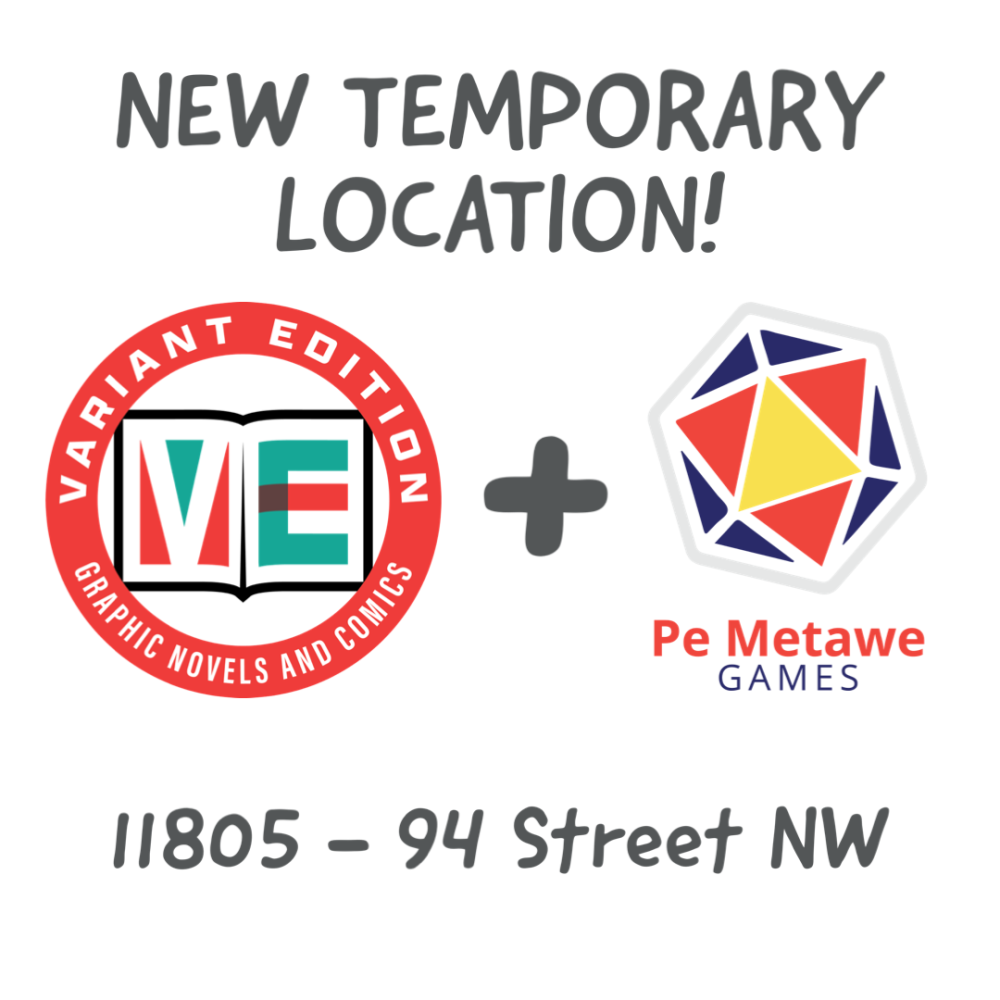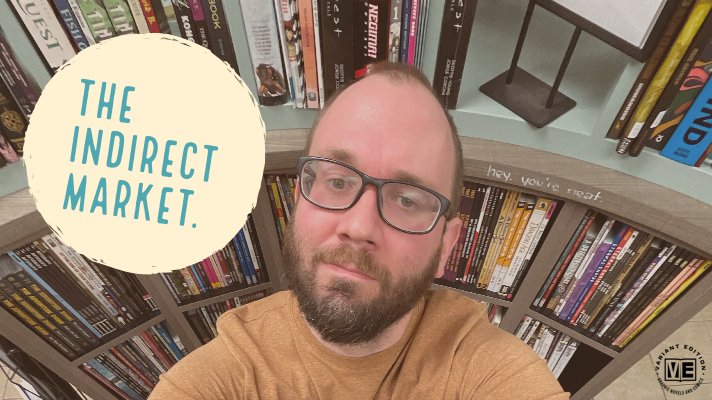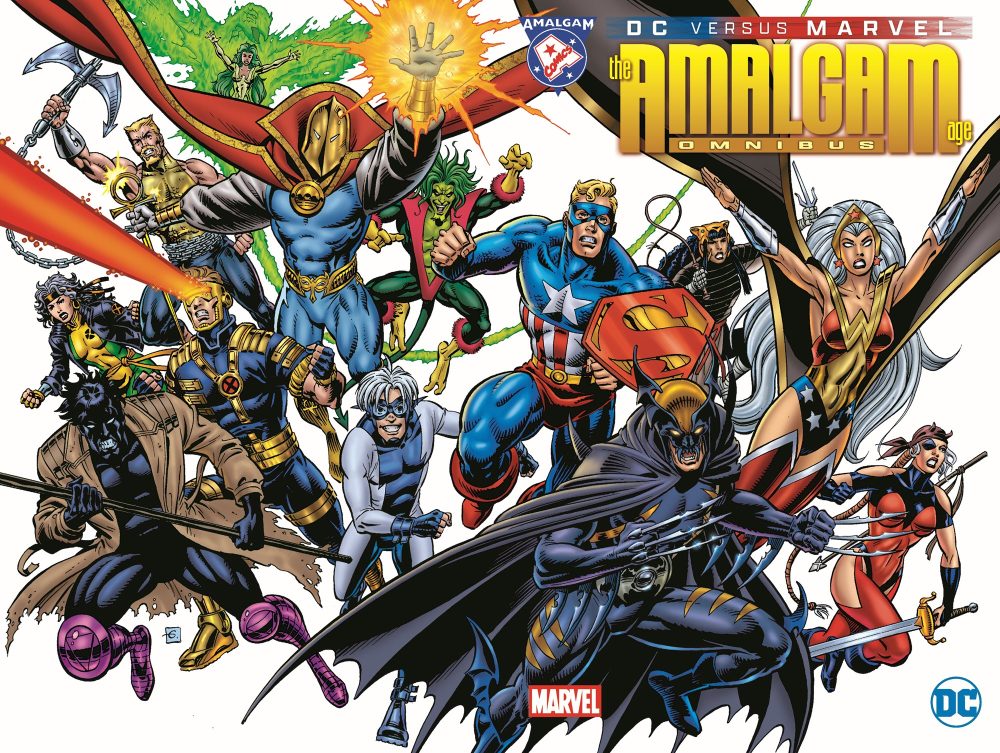I remember being exhausted.
When you’re running a small business, it is part of the uniform. The demeanour might mask with vibrance, but within, there is a weariness. On the good days, this weariness is counter-acted by the joy that floods this life. You’re in control of your destiny. You are connecting with people on a personal level. You are part of a community.
On the bad days, however…
I’m not a morning person. Waking up takes a bit of ritual before I deem myself fit for proper society. Despite that, in August of last year, I had tricked myself into working out nearly every morning. Lane swimming, mostly – but I would skip Wednesdays as a bit of a treat before dealing with the busiest day of the week.
This was something I was able to maintain until late January of this year, when the e-mail came in. It was a Wednesday. I had just gotten out of the shower, pleased with a few hours of sleep, but dragging the mental weight of running a small business, and the physical weight of trying to do anything after your 20s. I quickly checked the store e-mail to see if there were any fires we would need to put out before the doors open.
My eyes hit the word “flood”.
I opened the e-mail, adrenaline thumbing through my body. A portion of it read:
Good morning,
If you have not already done so, we would like to ask you please get in contact with your insurance company as soon as possible and inform them of the flooding incident that has occurred.
If you have any questions or concerns, please reach out to our office.
There was no other information beyond general contact info for the management.
This is how we found out that the building that our store was in had experienced intense flooding. 1.2 million litres of water filling a long strip. The water was said to have reached five feet in height in some spaces.
Thankfully, the flood was in the basement space of the building, and we were on the main floor. Regrettably, this still meant the whole building would have to be shut down for an unknown period of time. We were told days or weeks. That was January 24th of this year.
As things stand now, that building is still closed. A little over a month ago, after consulting with a bunch of different parties, we decided to break our lease in line with what was allowable due to forced business closure. Many days later, we are in a brand new space, ready to start a new chapter.
In an industry where many are finding it hard to continue operations without a catastrophic event like we experienced, we count ourselves lucky. Despite some bad luck landing us in this situation, and some good luck carrying us through, all of it would mean nothing if we hadn’t inadvertently prepared for hardship.
This whole ordeal has been terrible, but it has also proven that there are ways we can all move forward as an industry, even when times feel dark. We’re going to share some of the lessons we learned as well as others that were reinforced by this experience, and hopefully, through this lens, we can provide a bit of a look at how the comic industry can move forward.

First, a lesson reinforced: a business is nothing without a community, and a business BECOMES nothing if they don’t build one of their own.
This one will seem basic to a lot of folks who run a small business. Most comic shop owners built their shop because they love this medium, and the people that populate this space. That said, while the comic industry can feel small by many standards, it still contains an unwieldy breadth of tone and experience.
There are so many ways to engage with this medium, and very few of them are wrong. Because of this, there are so many ways to run a store that appeals to different aspects of that engagement. Some really dig into the “collectible” experience and lean hard into back issues and premium products. Some build out from engaging with story first and foremost. All of these businesses start with casual engagement from the comics community as a whole. The smart ones identify and build more connective experiences for the audiences that their business speaks to most directly. The galaxy brain ones do that in tandem with looking at the communities beyond to bring more folks into this medium.
In our case, building connection through story has always been extremely important to us. When folks walk through our doors, it is our goal to get to know a little bit about the person (as much as they are comfortable with sharing) so we can match that person with their new favourite story. In the beginning of our shop, we thought this kind of engagement was just “good business”, and nothing more. As a small business, the thing we can always do better than a large business is engage on a more personal level. We took the limitation of having a lower volume of people coming through our doors as an opportunity to provide a unique experience for those who did show up.
What we’ve come to realize over the years that this isn’t just a good business practice, but it is just good life advice in general. When we were engaging with our customers, we weren’t just building repeat business, we were building connection. We were sharing experiences, and learning about each other. So when COVID hit, and when this flood happened, we didn’t just have customers, we had community members. People who were cared about and who cared about us in turn. If a flood hits a Wal-Mart, you’re not going to find the same level of care from their customer base. Those folks are going to find another place to get the experience Wal-Mart offers. But our folks? Our folks stuck to us like glue, and they carried us through so much.
I honestly don’t know how a small business would operate without actively engaging with, and fostering a sense of community. That said, I know there are shops that outright refuse to do so. I’ve had former managers of shops talk with me about how an owner of the shop told them they were “talking too much with the customers”. In one particular case, there was a premium placed on the volume of people that would move through the store taking precedent over everything and anything else. “More people through means more money”.
Now there’s a bit of truth in there: volume will certainly net you more money. That’s basic capitalism. That said, I believe that nothing destabilizes a small business quite like a lack of meaningful engagement with the customers that come through your door. If you’re not giving people an experience they can’t find anywhere else, then there’s no real reason for them to stick with you. If you treat customers as “just customers”, they will repay that in kind by treating you like “just another business”… and that is a very dangerous path.
Folks up and down this industry, from retailers, to publishers, to distributors, to creators: take this to heart: if the people you are engaging with are just stats or numbers or “consumers”, you will not find long term success. Sure, an eye to volume will get you through today, but there’s a reason why the hardest forms of capitalism are so volatile. The line can only go up so far before people realize there isn’t anything meaningful to hold onto anymore. They’ll seek a more meaningful connection elsewhere, and they’ll take their support with them
This is why building community is the most important thing. It isn’t entirely recession-proof, but it is the closest thing to it.

Next, a lesson discovered: reaching out to like-minded businesses in good times, and in bad, is helpful to everyone.
This follows the same ideas as the first lesson, but reframes things a little.
Running a small business can be a relentless grind, and sometimes that grind will silo you into a lonely state of being. Part of it comes from all the hours and focus that is required to keep a business running. Another part comes from a general lack of energy that can permeate when the mind just isn’t up to handling everything in stride. There’s not much that can combat the overwhelming times – though commiseration can be a huge help.
In building Variant Edition, Danica and I have taken a lot on over the years, and there are times when we felt like we were completely falling apart. While this article is focusing mainly on positive experiences, there were a couple of weeks where we felt as though it was all slipping through our fingers, and there was nothing at all we could do to keep holding on.
And then, a like-minded business reached out to us, and offered us respite.

We had been friendly with Pe Metawe Games since the shop opened, and we would both help each other out in small and large ways over the years. We would also vent about the little things that get under the skin and talk about our shared disdain for the “volume at all costs” business mindset.
This was a friendship that we valued – and one that absolutely saved us when we were at our lowest during the flood.
The fine folks at Pe Metawe messaged us and offered us a space to function from on an indefinite basis in early February. It was an incredible kindness we will not be able to properly repay, but one we will strive to give back in any and all ways we can.
That said, another business would never have reached out to offer a helping hand if we had not been engaging with them in a meaningful way.
In our spare moments, Danica and I will often try and build connections with other small businesses, both within a similar sphere of influence, and outside. We’ll visit small shops, share stories, and get to know the people who run them. Visit places on our days off and put money right back into local places that are just pushing through, like us.
Doing this has helped us build a wonderful community of businesses that look out for each other and help lift us all up. Each one of us has good times, and bad times, and when one of us is down, the others can help out. It is important to note this help is not just monetary, but emotional. Again, this comes down to connection.
If your outreach as a business is always transactional, you will be treated transactionally by the businesses around you in turn. This has been the downfall of many once successful small businesses. I can’t count the amount of times we’ve been talking with another business owner and stumble our way into a conversation about folks who only reach out when it is to their business’ benefit. We’ve all been suckered by folks who talk a big game about community, but as time goes on, it becomes more and more apparent that you’re only in their orbit for as long as they deem you to be of use. True collaboration involves a push and pull. True resilience only comes with a willingness to be selfless to help others. It’s part of a pooling of general resources, of knowledge, and of skill that helps lift all involved.
In terms of the industry, I would say it would behoove us all to build out like-minded connections, and to work more selflessly with each other. Danica and I are part of a few small groups who have done great things for our mental health and our business in general. Being a part of these communities have been nothing but beneficial in the long run, and I cannot stress enough how important it is to make these types of connections.
And beyond that micro level, it is important for retailers, publishers and creators alike to reach out and help each other in meaningful ways. A lot of this is happening in the industry, and the places and moments where this occurs are incredibly valuable. Things like The COMET Standard and the entirety of ComicsPro. There are many other places where there are contact points between many parts of the industry, but by and large, I’ve found those points to be meaningless, as folks (usually retailers) just spend a large chunk of time airing real or perceived grievances, without offering any paths forward.
Now, I will say: I don’t have a problem with folks identifying pressure points in the industry. That is something that needs to occur so we can more readily identify things that need work. My problem comes when that’s the only work being done by some folks. A stream of negativity, in the end, offers nothing. Communication in good faith, with parties working toward some mutual benefit, is everything.
Finally: the most important lesson learned – and one that pulls a bit from the ones before: do not let your setbacks or limitations define you. Build from them, or around them.
There are certain things that absolutely cannot be avoided. In our very specific situation, there was no way we could have prevented the flood that closed our business for an ungodly period of time. Speaking more broadly, there are many different aspects of the comic book industry most of us within cannot avoid or control, and I do not see the benefit in pushing against things that are not malleable.
There are a few things in this industry that I find to be absolutely unshakeable, and going forward, cannot be changed. First: Marvel and DC as entities do not have the comic industry’s best interests at heart. This is not to say the people working within their structures do not care about this industry – they do, just as deeply as anyone who has chosen this general path. But the companies themselves, are no longer their own. They haven’t been for some time. They are part of companies that deal in volume, like I talked about before, and because of that, they have certain survival requirements that work against building something sustainable for all parties involved. This cannot be changed.
The IP contained within both Marvel and DC are too valuable for these large companies to just give them up, so this will be the reality going forward. Quite frankly, it will probably only get worse as companies continue to gobble each other up in pursuit of whatever version of happiness is involved in the shareholders seeing value in their investments. Unless we’ve blown up the world before this point, at some time in the future, we’re looking at both companies licensing out their characters for comics rather than producing them in house. Marvel has been doing so quite regularly lately with folks like Abrams and Scholastic. In some cases, these projects have vastly outperformed Marvel’s own titles in the book market. The groundwork is being constructed.
Next: there is no sustainable point of growth in store for the single issue format. There’s just too much working against it. Costs have gone up across the board, and along with it, so have the prices of single issues, while the quality of the physical object has dropped – and there isn’t a world that exists where we’ll see companies start to drop the prices on their titles. Many have tried to have value priced initiatives in the past, and they all eventually go away as the market as an entity does not care. Individuals certainly do – I’ve had many a conversation with people where they’ll say “if comics were $1.99, I’d be reading a lot more books”. Unfortunately, the math just doesn’t work to make this sustainable. A heck of a lot more people will have to suddenly get into reading a lot more books for companies to see the profits they need to keep the costs down. This will not happen.
The single issue format is not the discovery point anymore – at least not at a volume where the pricing of comics will be able to stabilize instead of creeping ever upwards. And at the same time, the format is still vital for large chunks of this industry to function. Their serialized production and sale spreads the monetization required for the work to be done. While I’m not bullish about the format, I can recognize that it still serves a function in the industry as it exists. At the end of the day, without radically rethinking or reworking how comics are released, the single issue will be relegated to collector status – not a place of introduction, but still a source of revenue when folks get in real deep.
These points are fairly unshakable. No amount of lobbying will move them or prevent the path that we’re currently on. So what can be done?
Having run Variant Edition through a(n ongoing) pandemic and through forced closure due to flooding, I can tell you that we survived by working with the problems instead of against them. That seems like a strange thing to say, but I can explain myself.
When I say “working against a problem”, I mean trying to work as though the force you’re against can be moved. COVID can not be moved. A building closure of this kind can not be moved. Corporations, can not be moved – not as a whole entity. When I say working with the problem, I mean trying to work with the parameters to figure out new ways to build and function.
With our flood situation, we found ourselves in a spot where we were functioning from a “showroom” of sorts. A small space, maybe 1/5th or 1/6th of the size of our shop. Eventually, we gained access to our old space, but we couldn’t run the business from there. We could only gain access during weekday mornings, when we could pop in and grab whatever we needed. Near the end, this involved wandering a long winding path, squeezed between the building and some fencing. (Moving things out this past week was a treat.) We started calling this space “the warehouse”, as it functioned as glorified storage.
This obviously wasn’t an ideal situation, but instead of trying to figure a way through it, we just built around it. We decided to make this a test run of sorts. Could Variant Edition run as a showroom style business, with a larger inventory that wasn’t necessarily accessible to the public? It would mean we would be leaning harder online, and pushing more special orders – which is what we did. We reframed our circumstance, and tested a new system. In the end, we discovered that the format is workable – but would take a few changes in our business to become fully sustainable.
That said, as things shook out, we managed to survive our months in limbo without things getting dire financially. This took a lot of extra work, but we did manage to get to the other side, and are now setting the stage for some exciting times to come. When we took stock of just how we managed to do that, we hit upon all the things we talked about above. We are currently taking those lessons to heart and allowing them to help push us forward.
To that end, I want to encourage all parts of this industry to think critically about the spaces they are in, and how they interact with them. I also want to circle back to the idea that Marvel and DC (and other companies) are unmovable, and crack that open from a different angle. When I say they are unmovable, I mean as structures as a whole, and not their composition. The parts of these companies that are involved in the day to day production and selling of comics – the people who work so hard to bring wonderful stories into the world – are not unmovable. As individuals, they are all part of the community. We are all part of the community – and it is vitally important that we recognize this fact.
Entities are hard to move, but people are not – and I doubt there is a single person in this industry who is putting their time and effort into this industry that is doing so with malicious intent. Folks aren’t producing books thinking “let’s see them try and sell this”. We’re all trying to push in the same direction, always. With that in mind, we really do need to stop working against each other, and against the parts of this industry that can not and will not change. We need to reach out on all levels, and build resiliency as a community, and as like-minded businesses, all looking for success within the medium. No matter how bleak things might seem at any given point in time, this can absolutely be done.
I believe in this industry. I believe in the medium. I believe in all of us. The future is so bright for comics, and the more people we can bring with us, the more we will build up strength and resiliency. We’ll be able to survive the upcoming changes, whether those changes are firmly in our control or not. We will build the next thing, and we will be sustained.
We will survive.
Thank you for your time, folks. Keep an eye on this space, because there’s been so much I’ve wanted to talk about while all our resources were tied into keeping the shop running during the first third of this year, and I’m proud to have this platform to get these words out. These missives would mean nothing without what Heidi MacDonald has built here. The Beat is a perfect example of community built resiliency, and I hope to be at least a small part of it for many years to come.
Talk with you soon.
The Indirect Market is an Eisner-nominated column published irregularly at The Beat. If you’d like to read more stuff like this, head over to our Substack where you can get smaller, less rational updates from the frontlines of the comic book industry.














